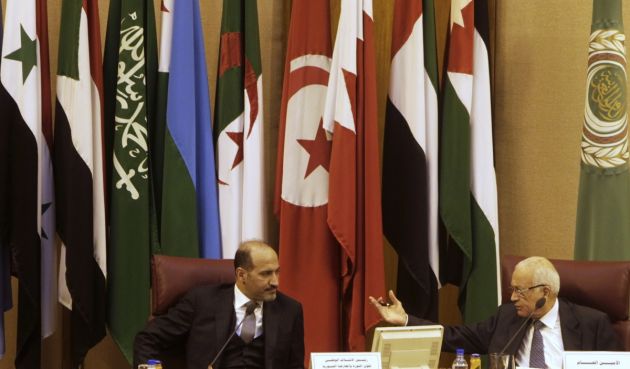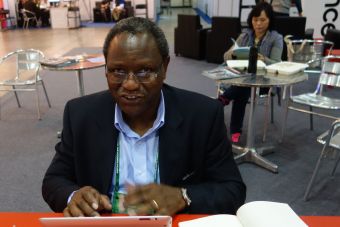Talks fuel hope, but for aid agencies the Syrian crisis does not stop

BUSAN, South Korea – The protracted Syrian civil war continues to push us casualties, boosting the numbers of people left without homes and spreading tension in the region, so life is not easy for aid agencies working there.
The ACT Alliance spoke out about its response to the Syrian crisis during the 10th General Assembly of the World Council of Churches October 30 to November 8 10th Assembly in Busan.
Hopes are high but expectations low that United Nations talks scheduled to take place in Geneva later this month can clinch a cessation in hostilities and lay out a framework to achieve peace in the region.
News agencies reported that the leadership of a group called the Syrian National Coalition (SNC) held talks in Istanbul a week earlier to decide whether to take part in the forthcoming Geneva 2 conference on the 32-month crisis in the Arab country to be held later this month.
ACT workings with internally displaced Syrian refugees and also has a strong presence in Syrian refugee camps in neighboring Jordan, Lebanon and Turkey.

The escalating conflict in Syria has left more than 4 million people homeless in Syria and created 2 million refugees.
Due to the influx of Syrian refugees, Za-atari refugee camp in Jordan is now the second largest in the world.
ACT Forum Coordinator and Orthodox Patriarchate of Antioch and All the East, George Dimas, told Ecumenical News that the ACT Forum, founded in November 2012 provides the material support for Syrian refugees through funding provided by the ACT Alliance.
"Through our mission and our work as the ACT Forum we promote and preserve our Christian presence which is very important for us as Arab Christians in the Middle East.
"We have to stay there because we are an integral part of the society; we have been there for a long time. Support from the West to keep us on land would be greatly appreciated," Dimas told Ecumenical News.
Rudelmar De Faria, of the Lutheran World Federation and an ACT Alliance executive committee member, spoke to the WCC community regarding the work of the coalition in Syria.
De Faria said ACT Alliance faces roadblocks as it tries to support Syrian refugees in Syria, Jordan, Lebanon and Turkey.
Some of the issues include logistical difficulties in getting aid to certain refugees, discrimination of minorities in refugee camps and a struggle to offer ways for refugees to build a livelihood.
ACT Alliance members supporting efforts for Syrian refugees include the International Orthodox Christian Charities (IOCC), the Lutheran World Federation (LWF), the Department of Service to Palestinian Refugees of the Middle East Council of Churches (DSPR/MECC) and Presbyterian Disaster Assistance (PDA) among others.
Dimas stressed the very transparent work of providing material support to refugees the Forum does through local member organizations including IOCC, the Church of Norway, the Church of Sweden and other helping organizations.
The host countries in Jordan, Turkey and Lebanon, said Dimas, are becoming restless as Syrian refugees receive support when local communities are also in desperate need. The ACT Forum and ACT Alliance are continuing to work on solutions for these issues.
ACT Alliance recently issued a $20 million emergency appeal aiming to provide further support to a half million people displaced by the fighting within Syria.
This appeal follows the successful $6.5 million appeal which provided health care, education, psychosocial care, shelter, food and clothing to refugees living in camps and help paying rent for refugees in host communities.
ACT Alliance recently joined former United Nations secretary general Kofi Annan, UN-Arab League joint representative for Syria Lakhdar Brahimi and senior church leaders in calling for a political answer to the conflict.
De Faria stressed that the political answer must be diplomatic and peaceful as opposed to military in response to the Syrian crisis.
John Nduna, ACT Alliance General Secretary, said the meeting was one of the few times the international community and the participating churches were united in their view that military intervention was not a solution for the Syrian Crisis.
De Faria acknowledged that funding from the West has diminished greatly. Reverend Dimas hopes that new funding partners might be found on the Asian continent as missional work strengthens in countries such as South Korea.
